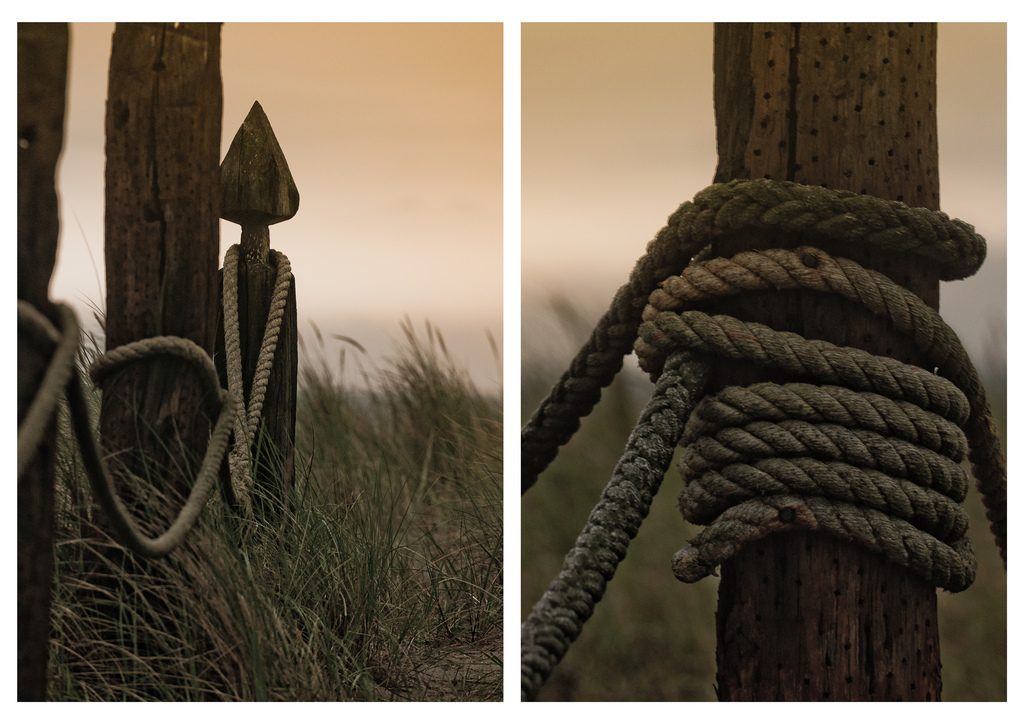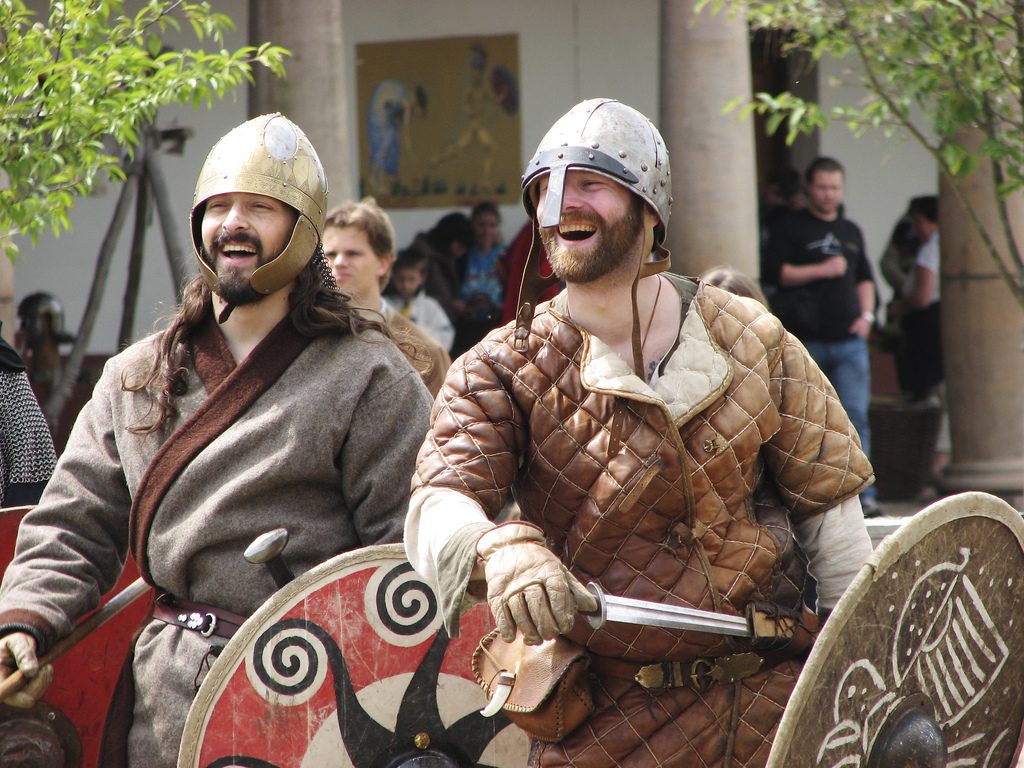An Icelander walked past a bar. Posted by hulda on Jan 29, 2015 in Icelandic culture, Icelandic customs
It happened years ago on an evening in May. I had just met my SO and we were sitting together in a garden swing talking of this and that, and eventually started telling each other jokes. This was the first one he told me.
(To understand the following you’ll have to know that reipi means rope, and að ýta means to push. You can listen to the pronunciation of reipi here and ýta here. Declension key: Ég ýti = I push.)
A group of American tourists was driving around Iceland. The roads were slippery and at one point they drove off the road and their car got stuck.
Two Icelanders came along and saw the group in trouble, but their school days had been a long time ago and as they had had little chances of speaking English they had almost forgotten the language. Nevertheless they decided to try to explain the tourists that they would attach a rope to tow the car with theirs and then one of them would also push the tourists’ car, so they went over and the other one told them:
“First we’re going to reipi you and then I’m going to ýti you.”
You may want to read that line out loud to figure out where the joke is. Remember that when a word begins with a y it silences the i-ending in spoken language. 😀
The joke stuck with me for many reasons. I love puns and jokes where people make fun of themselves, so an Icelander telling an Icelander-joke totally hit the spot. Thirdly… I love horror movies and the original Texas Chainsaw Massacre just happens to have Gunnar Hansen (link), an Icelandic actor, starring as Leatherface! Well, admittedly also because I was making heart eyes at the one telling me the joke, but let’s not get too mushy here.
Do we even laugh over here?
Brandari, djók, grín, all three can translate as “joke”. Having said that it’s usually quite hard to know when you’re hearing one because the local sense of humour is very different from anything I’m accustomed to! It’s often self-deprecating, but in a way that leaves you guessing whether the person might actually be serious. No topic is considered too offensive or bizarre – in fact the stranger the situation the funnier the joke. Icelanders use many puns and insider-knowledge, so many jokes may slip past an outsider’s radar either because you didn’t realize the pun was there or did not know the specifics behind the joke. When obviously joking the Icelanders tend toward gallows humour – here’s a few lines that have apparently all been printed in the minningargreinar, obituaries:
Hann var sannur Íslendingur og dó á 17. júní. (= He was a true Icelander and died on the 17th June/national day of Iceland.)
Þeir sem guðirnir elska deyja ungir. Þessi orð koma mér í huga þegar ég minnist afa. Hann var 93 ára þegar hann lést. (= Those that are loved by the gods die young. These words come to my mind when I remember my grandpa. He was 93 when he passed away.)
Hann giftist eftirlifandi eiginkonu sinni og átu þau tvö börn. (= He married his remaining wife and they ate two children.)(This one’s actually a really unfortunate printing error: þau áttu = they had, þau átu = they ate.)(Not too sure about “remaining” either… the SO confirms it sounds odd to him too.)
Laughter as a weapon
You don’t have to actually die to get a joke about you. Here’s one of the type where you have to know something very specific about Iceland to get the joke. Árni Johnsen is a politician from Sjálfstæðisflokkurinn (= Independence party), the very party that caused the 2010 collapse of the economy and the depression that followed it. Árni is also known for having served time for using a government account to pay for his personal property.
Hann Árni Johnsen frá Vestmannaeyjum dó og fór til himna. Lykla Pétur stoppaði hann og sagði: “Nei nei hér kemstu ekki inn.” “Jú Jú víst kemst ég inn.” “Það er best að ég nái í Guð og láti hann tala við þig.”
Og Lykla Pétur fór og þegar hann og Guð koma þá er Árni farinn og gullnahliðið líka.
(= Árni Johnsen from Vestmannaeyjar died and went to heaven. St. Peter stopped him and said: “Oh no you’re not getting in here.” “Oh yes of course I’m getting in there.” “It’s best I’ll go get God and have him talk with you.”
St. Peter went away but when he came back with God, Árni was already gone and so were the pearly gates.)
Sense of humour is often a tool for surviving harsh conditions, and for Icelanders this may be exactly so. Perhaps life on this island has been so difficult for so long that unless you learn to laugh about it you don’t stand a chance? Maybe that’s why the Icelandic flavour of comedy feels a little strange at first; it was born to battle these surroundings, darkness, cold, occasional poisonous ash falls, glacier floods, famine and so forth, Icelanders don’t laugh at people, things or situations as much as they laugh despite of everything. I’ll end this post with a poem that has somehow managed to fit a lot of Icelandic-ness into one tight, compact package:
Bros okkur sýnir að hjartað er heima,
hlæðu og láttu þig stressinu gleyma,
lifðu í gleði og lát þig svo dreyma,
lystisemdir sem órofa blað
og hamingju nýturðu á hverjum stað.
~Einar Sigfússon
Our smile shows that the heart’s at home / Laugh and let yourself forget the stress / Live with good cheer and allow yourself to dream / Pleasures as a continuous page / And enjoy happiness everywhere.

Build vocabulary, practice pronunciation, and more with Transparent Language Online. Available anytime, anywhere, on any device.
About the Author: hulda
Hi, I'm Hulda, originally Finnish but now living in the suburbs of Reykjavík. I'm here to help you in any way I can if you're considering learning Icelandic. Nice to meet you!








